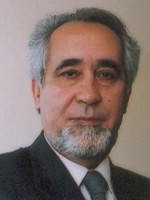abstract
The Portuguese-speaking countries (PSC) have a population of close to 250 million and occupy an area of about 10.7 million square kilometers across four continents. Most of these countries are rich in biodiversity and at the same time have a human development Index below the global average. This network of countries has a great potential to promote sustainability in higher education, due to cultural similarity and existing formal cooperation in other sectors. This is the first study to present a systematic review of the literature on this topic produced by PSC. Of the 50 publications selected for analysis in this paper, 36 were conducted by researchers in Brazil and 16 from Portugal, with only two partnerships occurring between authors of different PSC. The main contributions to the subject are in the areas of education, research, and assessment and reporting. Sustainability in operations and institutional frameworks were less represented in the analyzed sample, and therefore these are issues that need to be better exploited by PSC. Other contributions included strategies to reduce the gap between university and society and the political-emancipatory perspective as a pedagogical basis to support sustainability education in colleges and universities. Possibilities for future research on the topic of sustainability at universities are suggested considering the PSC context. (C) 2017 Elsevier Ltd. All rights reserved.
keywords
ACHIEVING CAMPUS SUSTAINABILITY; ENVIRONMENTAL-MANAGEMENT; TOP-DOWN; UNIVERSITIES; IMPLEMENTATION; INSTITUTIONS; METHODOLOGY; COMMUNITY; SCHOOLS; CULTURE
subject category
Science & Technology - Other Topics; Engineering; Environmental Sciences & Ecology
authors
Bizerril, M; Rosa, MJ; Carvalho, T; Pedrosa, J
our authors
Groups
acknowledgements
We thank the support of the University of Brasilia, University of Aveiro and Center for Research in Higher Education Policies (CIPES) for the development of this postdoctoral research of the first author. We also thank the contributions of the anonymous reviewers for the final version of the article. Norio Takaki and Ryan Nehring revised the english version.


